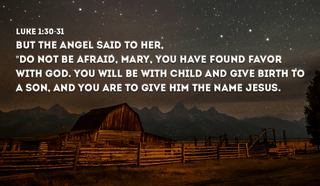
- Recent Translations
- All Translations
Luke 1:39
Share
Settings
Mary Visits Elizabeth
39 At that time Mary got ready and hurried to a town in the hill country of Judea,Luke 1:39 in Other Translations
Luke 1:39 Meaning and Commentary
And Mary arose in those days
The Ethiopic version renders it, "in that day"; directly, immediately, as soon as the angel was gone from her; partly to know the truth of things, and to make use of the sign which had been given her, for the further confirmation of her faith, which was very right and proper for her to do; and partly to converse with Elisabeth about the great things which God had done for each of them, and to praise his name together: "and went into the hill country with haste"; the same which is called the country of the hills, and the hills, and the mountains, in ( Joshua 10:40 ) ( Joshua 11:2 Joshua 11:16 ) ( 16:1 ) ( 18:13 ) ( 2 Chronicles 26:10 ) where the Septuagint use the same word as here: the land of Judea was divided into three parts, (rhh) , "the mountain", or hill country, the champaign country, and the valley F2: from Betboron to Emmaus is (rh) , "the hill country"; from Emmaus to Lud, or Lydda, is the champaign country; and from Lydda to the sea, the valley F3. This place is frequently called, in the Jewish writings F4, the king's mountain, or the royal mountain, and is said to be very full of cities: ten thousand cities, they say F5, were in the king's mountain, and a thousand of them belonged to R. Eleazer ben Harsum: yea, they say {f}, that king Jannai had sixty myriads of cities in the mountain of the king. The Syriac, Arabic, and Persic versions render it, "went to the mountain", to this mountain, and which is called the mountain, or, as we read it, the hill country of Judah, ( Joshua 21:11 ) on which Hebron was situated; and seems to be the city next mentioned: into a city of Judah; for that was given to the children of Aaron and so may reasonably be thought to be the city where Zacharias dwelt, and not Jerusalem, which was in the tribe of Benjamin. Hebron was a city peculiar to the priests; whereas Jerusalem was not; and it was in the hill country of Judea; it was remarkable for the goodness of its stones. It is said F7
``you have no stones in all the land of Israel harder than at Hebron; hence they buried the dead there.''
F2 Misn. Sheviith, c. 9. sect. 2. Maimon & Bartenora in ib.
F3 T. Hieros. Sheviith, fol. 38. 4.
F4 Targum in Jud. iv. 5. T. Hieros. Avoda Zara, fol. 44. 4.
F5 T. Hieros. Taanioth, fol. 69. 1.
F6 T. Bab. Gittin, fol. 57. 1.
F7 T. Bab. Sota, fol. 34. 2. & Cetnbot, fol. 112. 1.
Luke 1:39 In-Context
Cross References 1
- 1. ver 65

